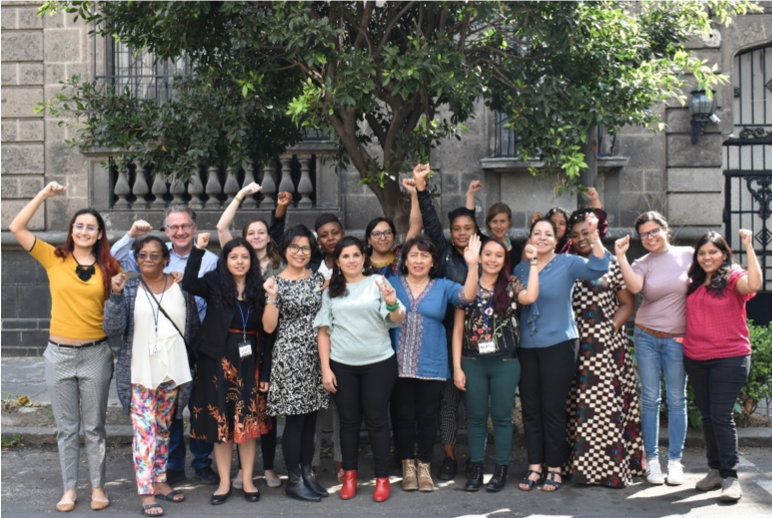On 4-8 February 2019, ten members of the Economic Policy Working Group (EPWG) came together in Chiapas, Mexico, for a workshop on building a shared systemic critique of the dominant economic system, otherwise known as the “Chiapas Workshop.” It was co-hosted by Otros Mundos Chiapas AC, which formed the workshop Planning Committee, together with fellow members: Chiadzwa Community Development Trust (Zimbabwe), The Egyptian Initiative for Personal Rights (Egypt) and The Kairos Center for Religions, Rights and Social Justice (USA).
The Chiapas Workshop is the first activity under the Economic Policy Working Group’s Systemic Critique Project, which aims to deepen and popularize a human-rights based critique of the global economic system — what members identified as capitalism — informed and guided by grassroots struggles.
To this aim, EPWG members gathered to build the foundation and common language of this shared critique. It was a space for mutual learning, exchange and strategizing towards the following objectives:
Strengthen a common analysis of the dominant socio-economic system and its link with human rights
Deepen a common narrative that identifies the contradictions and opportunities for collective action to advance human rights and social justice
Establish strategies to facilitate popular education related to this analysis and narrative within and beyond ESCR-Net
To achieve these goals, the agenda for the workshop was organized according to ESCR-Net’s Theory of Change: Solidarity, Mutual Learning, Shared Analysis and Collective Action.
One of the key highlights of the workshop was the second and fourth day where we analyzed the dominant economic system by establishing a historical timeline of the capitalist system. Through interactive discussions and collective online research, members developed concepts, definitions and identified key events in the development of this economic system in different regions throughout history. Building on the social movement member presentation on the Common Charter for Collective Struggle, members identified the dominant economic system as capitalism and recognized that there have been different iterations of capitalism throughout history: the liberal model, welfare state model, and neoliberalism.
Next Steps:
On the final day of the meeting, members identified four action areas under the Systemic Critique project for the next 1-2 years:
- Political Education Methods: This is a cross-cutting action area which aims to integrate elements of the analysis, research, and timeline. Members are interested in developing a shared definition, approach and set of principles on how to implement political education in the EPWG, including organizing exchanges on pedagogy, or “training of trainers” events, to strengthen political and popular education within ESCR-Net.
- Timeline of the Capitalist System: The purpose of this exercise is to provide a process and resource within ESCR-Net for collective thinking, building a shared analysis of the capitalist system with a human rights framework and related feminist, social and environmental justice lenses. Members of the Economic Policy Working Group will create an interactive digital timeline of the capitalist system — drawing from the collective timeline that started in Chiapas — and will expand it with inputs from similar future workshops that emphasize stronger regional perspectives.
- Research: Members of the EPWG are interested in exploring two distinct approaches to research: (1) Participatory Action Research and (2) collecting case studies from social movements in ESCR-Net. The research will ground the EPWG’s shared analysis of the dominant economic system on the experiences and understandings of those on the frontline of struggle.
- Communication and Popularization: This action area focused on communication, coordination and popularization within the EPWG, as well as across working groups. The purpose of this action area is to ensure that EPWG is creating relevant tools, materials and spaces for dialogue to inform member organizations about collective work and our deepening analysis of emerging themes and interests.

